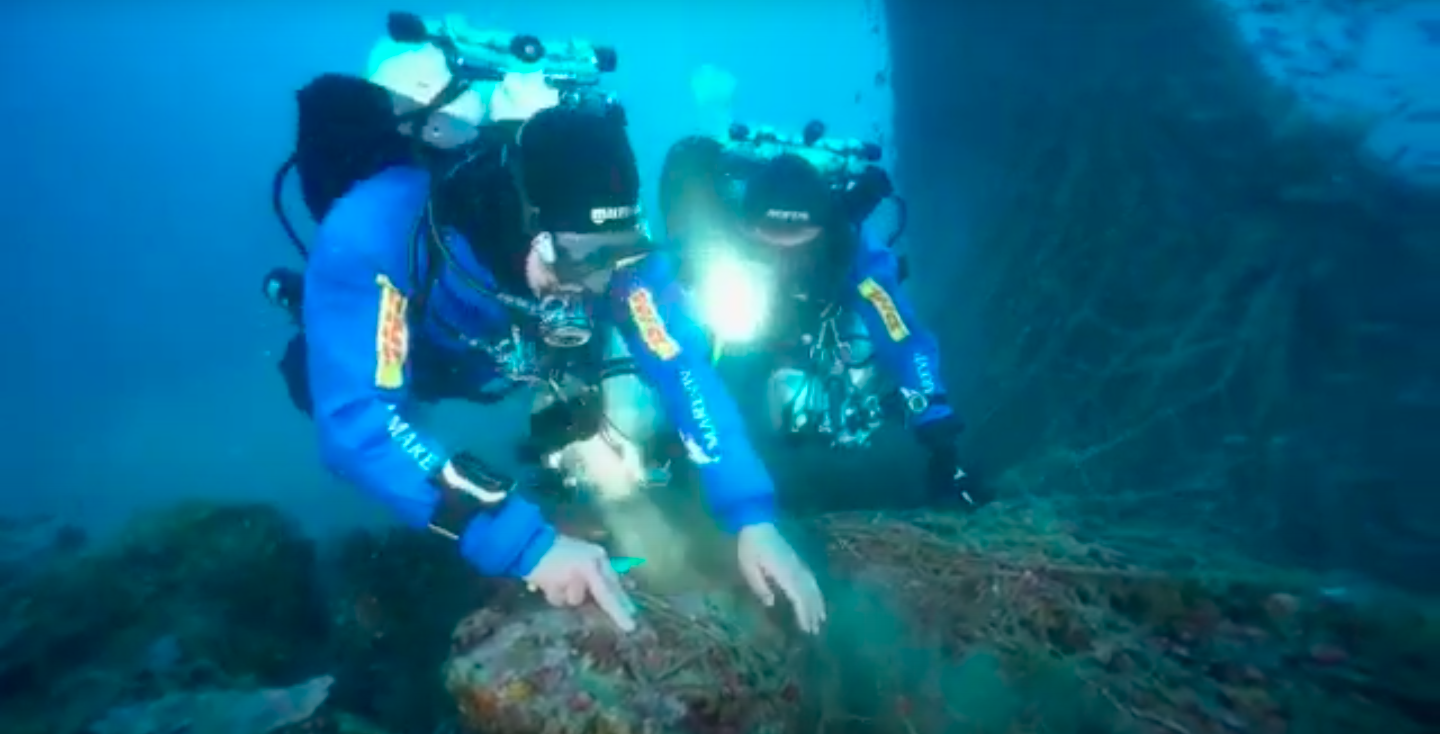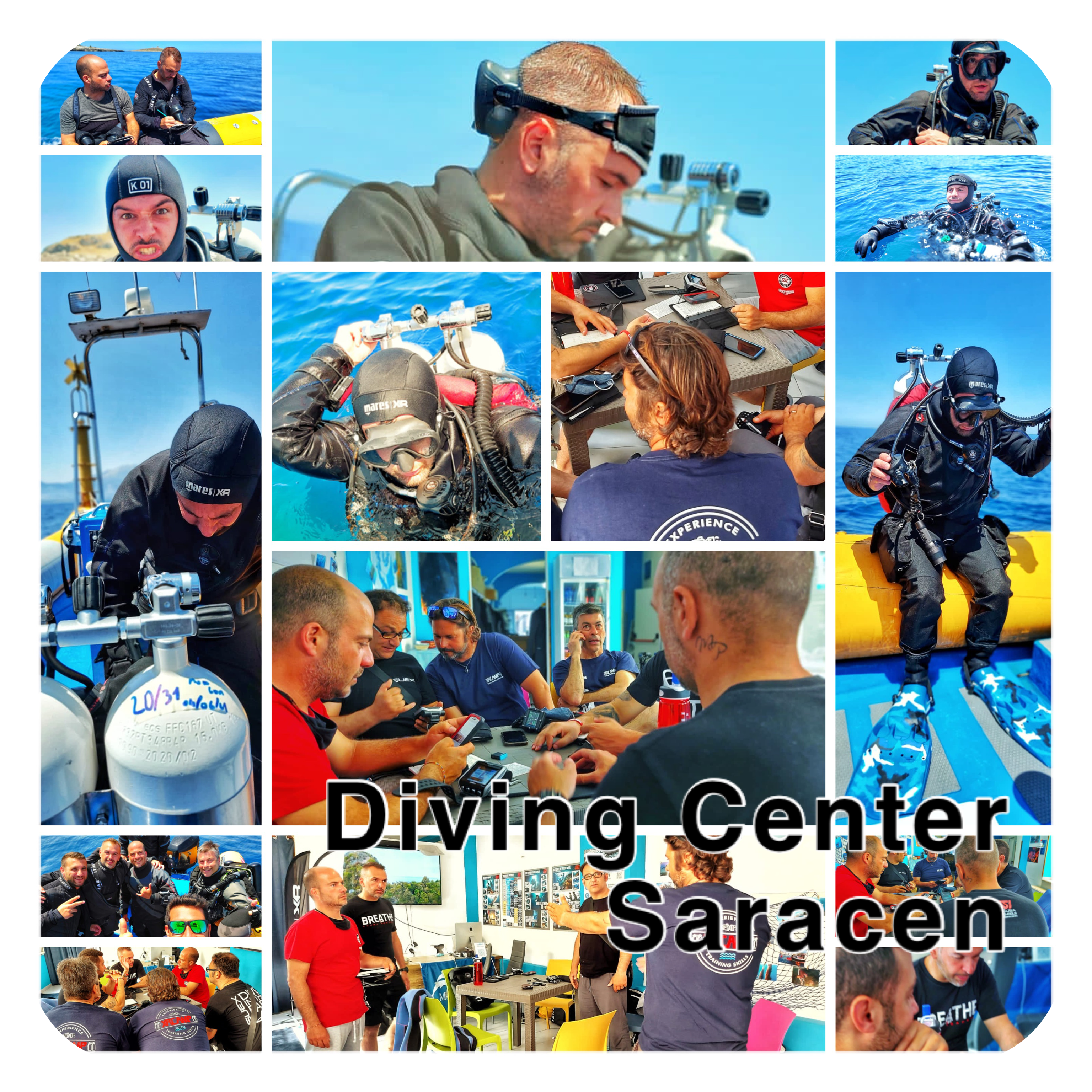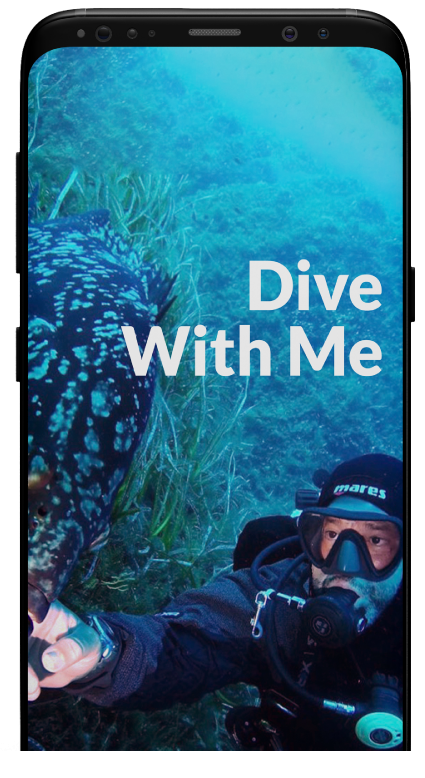An annoying wind, coming from the south, is making the sea in front of Isola delle Femmine slightly rough. It will certainly make difficult the operations of the team of divers who today will go down into the water to try to recover a ghost net, stranded on a large boulder at a depth of about 50 meters.
The operation
It is an operation organized by Marevivo, thanks to the recommendation of Tony Scontrino of the Diving Center Saracen in Isola delle Femmine. In the previous days, the team dived twice to survey the site and to start clearing the net at the deepest part.
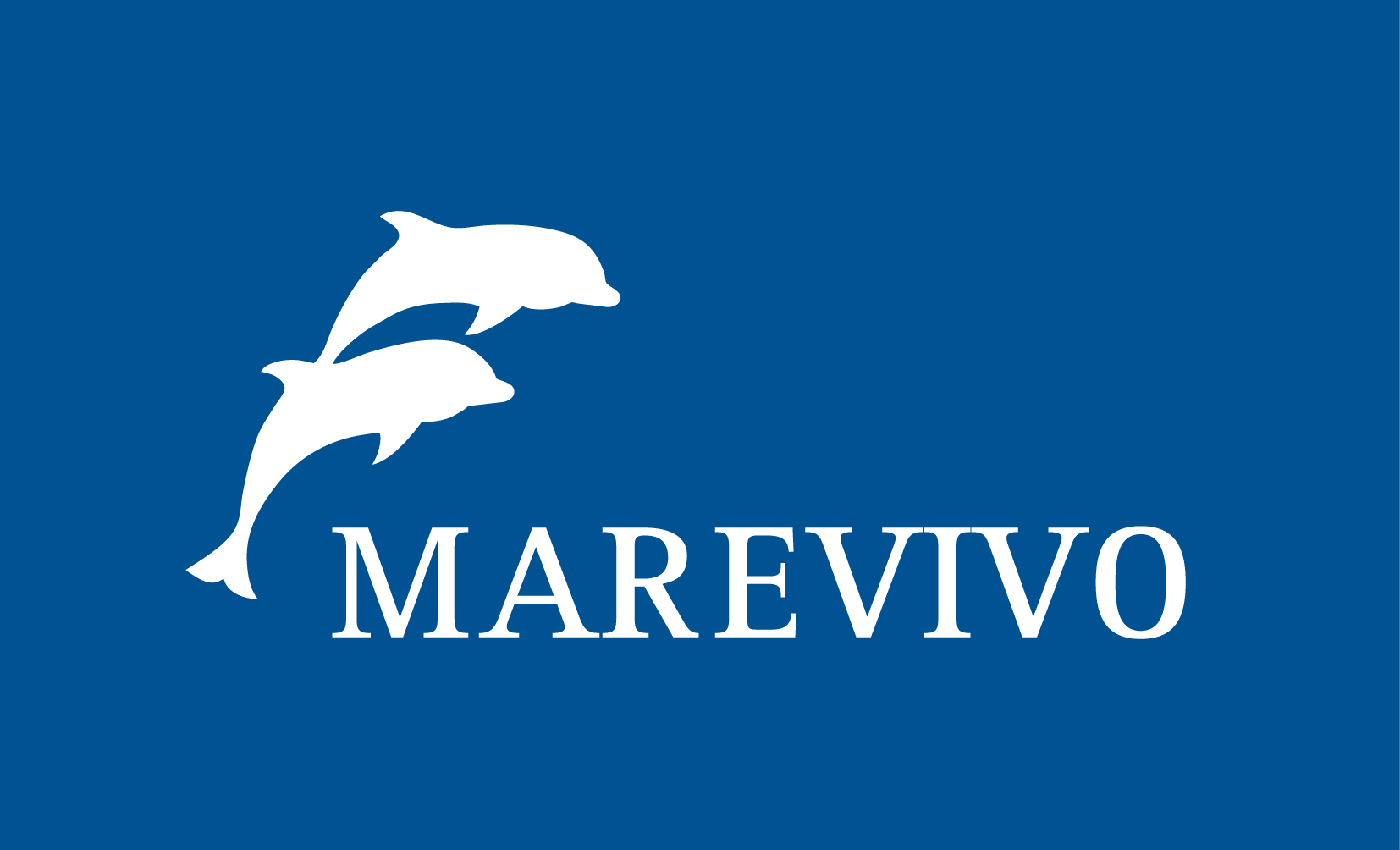
We are within the “B” area of the protected marine area of Capo Gallo-Isola delle Femmine, a few hundred meters from the islet which, with its Saracen tower, dominates this fascinating bay.
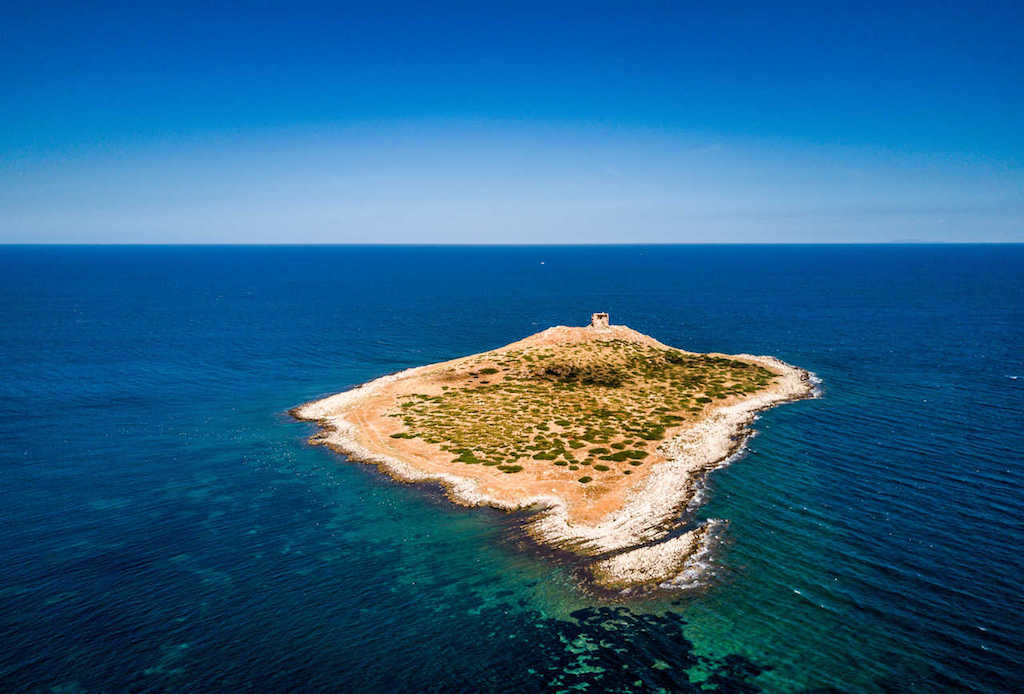
We immediately realized the size of this phantom network. Descending deeply, it forms a high cylindrical column that rises upwards, at the mercy of the current. As I move away slightly, it feels to be in the presence of a long submarine that rises from the bottom towards the surface.
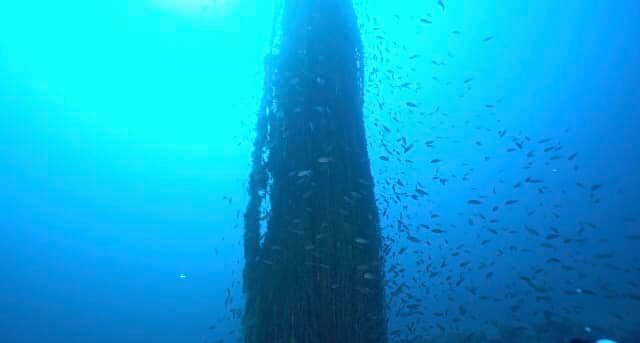
The mission
The sun has just risen when we find ourselves at the support diving center for the preparation of equipment and for the briefing. Massimiliano Falleri, coordinator of Marevivo diving division, illustrates his program and mission objectives. Tony Scontrino, of the Saracen Diving Center, plans the technical operations and the division of teams and tasks.
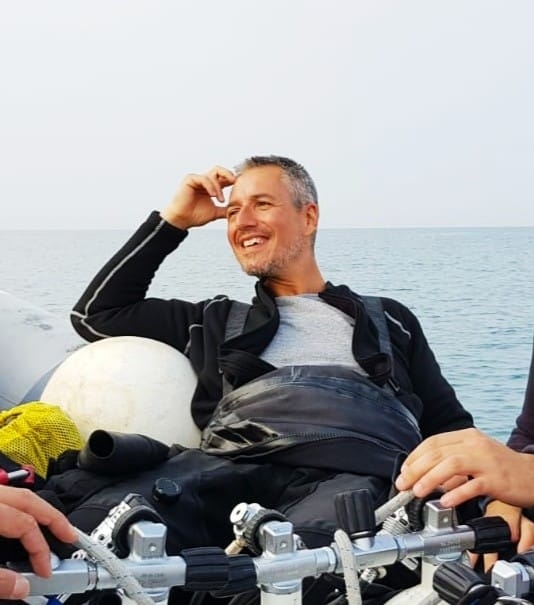
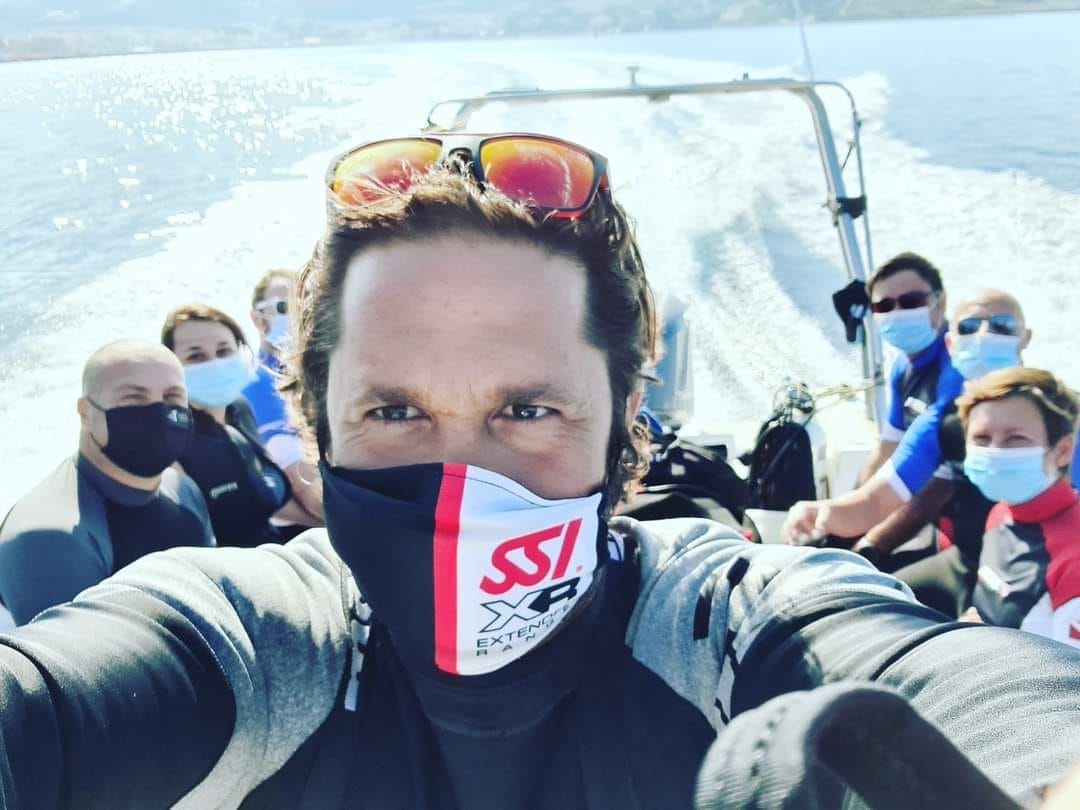
In all, 10 divers will operate at different altitudes, with the intention of tying the net to lifting balloons.
The first team to descend, made up of Tony Scontrino and Vincenzo Mazzola, has the task of tying it in several points and, at the same time, of securing it to the three large lifting balls.
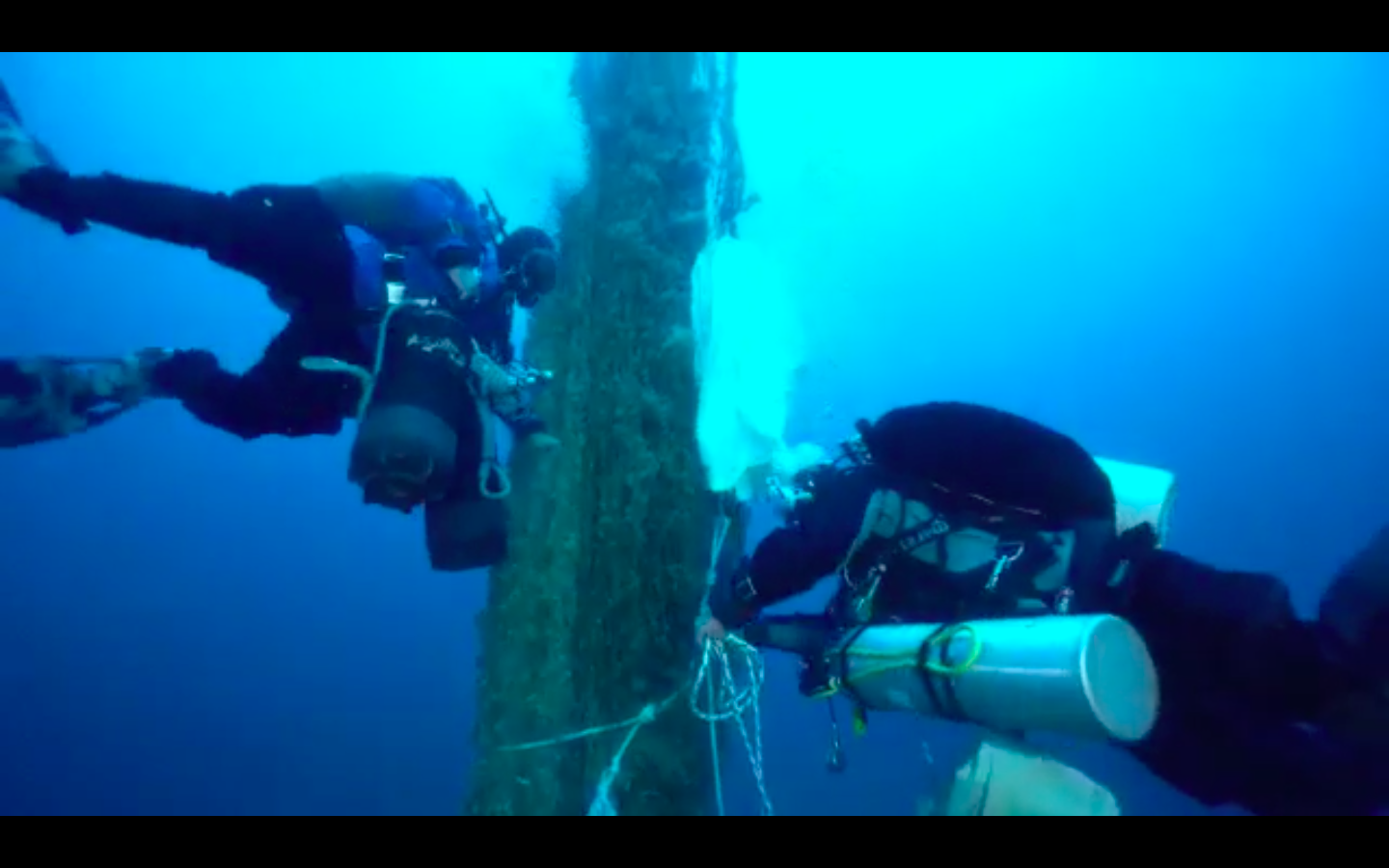
The second team, made up of Roberto Bottini and Marco Colciago (for the underwater world of Zar), coordinates the operations on the bottom with the aim of definitively detaching the ghost net from the rock. They secure it to three lifting balloons, to aid the work of the three Tony has set higher up.
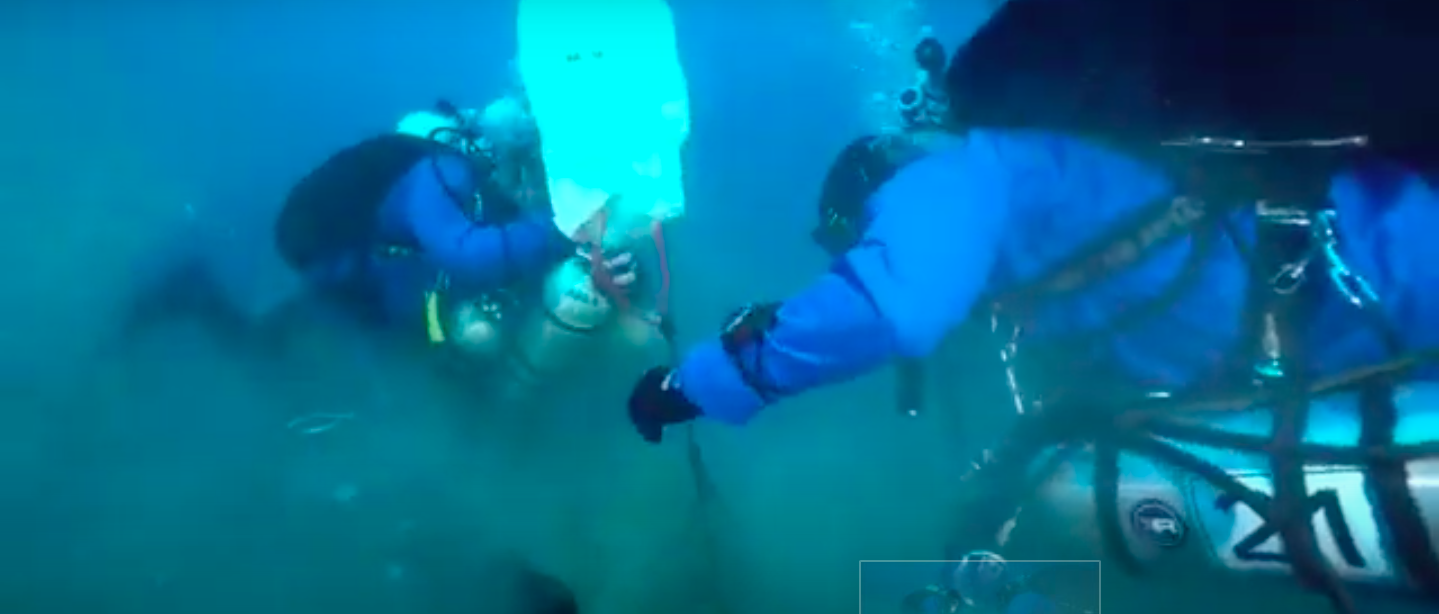
the Marevivo team is in the water to monitor the progress of operations. The net begins to move, slowly, like a huge sperm whale asleep at the bottom. Its movement causes a strange sound. The clarity of the water suddenly vanishes, giving way to the sediment that the net has accumulated during all this time that has remained stranded there, in that stretch of sea in front of Isola delle Femmine.
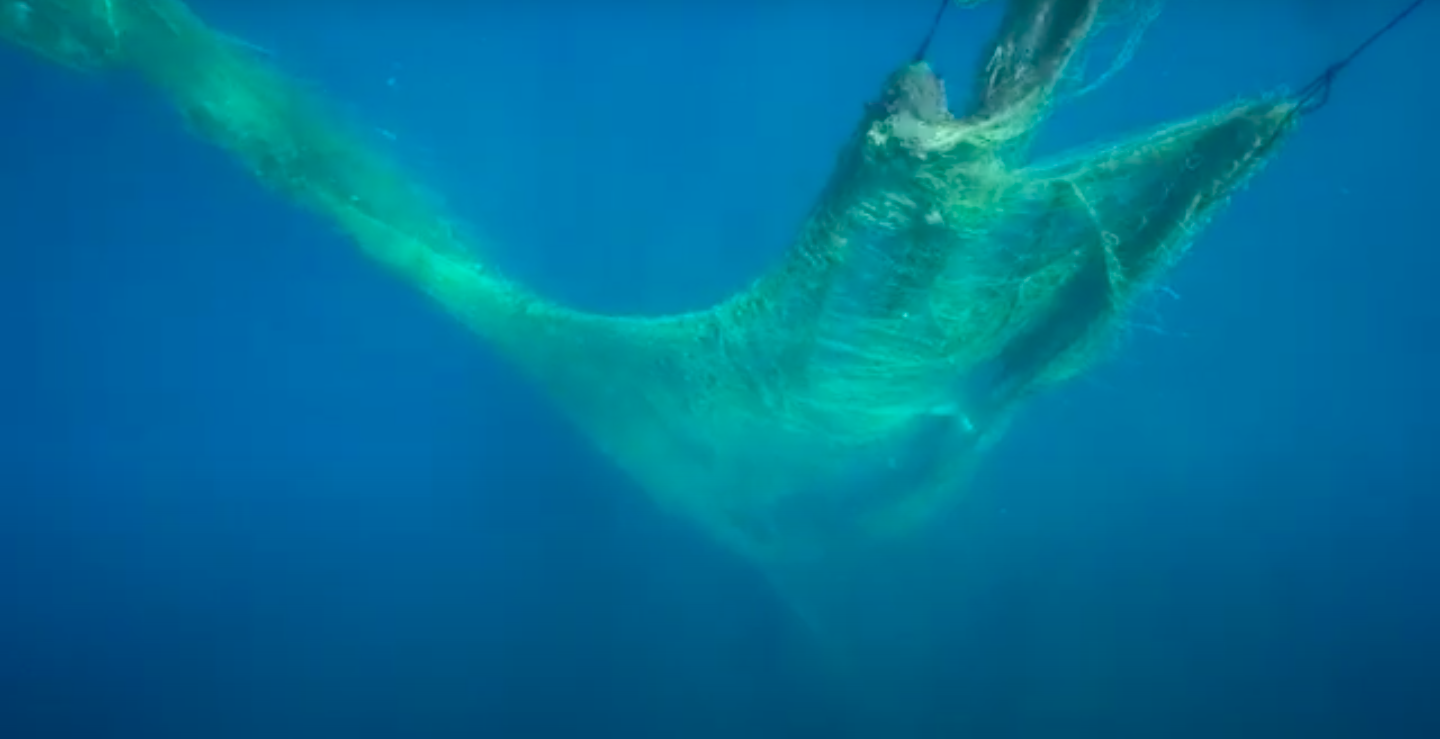
The time for me to go into the water had come, together with Martina Campagnolo. I had time to see this mass finally rise from the bottom and slowly rise to the surface. I realized that I have underestimated its real size. Although tied and bundled up in several points, the net continued to point threateningly towards the seabed. Its weight tried to overcome the hydrostatic force of the lifting balloons.
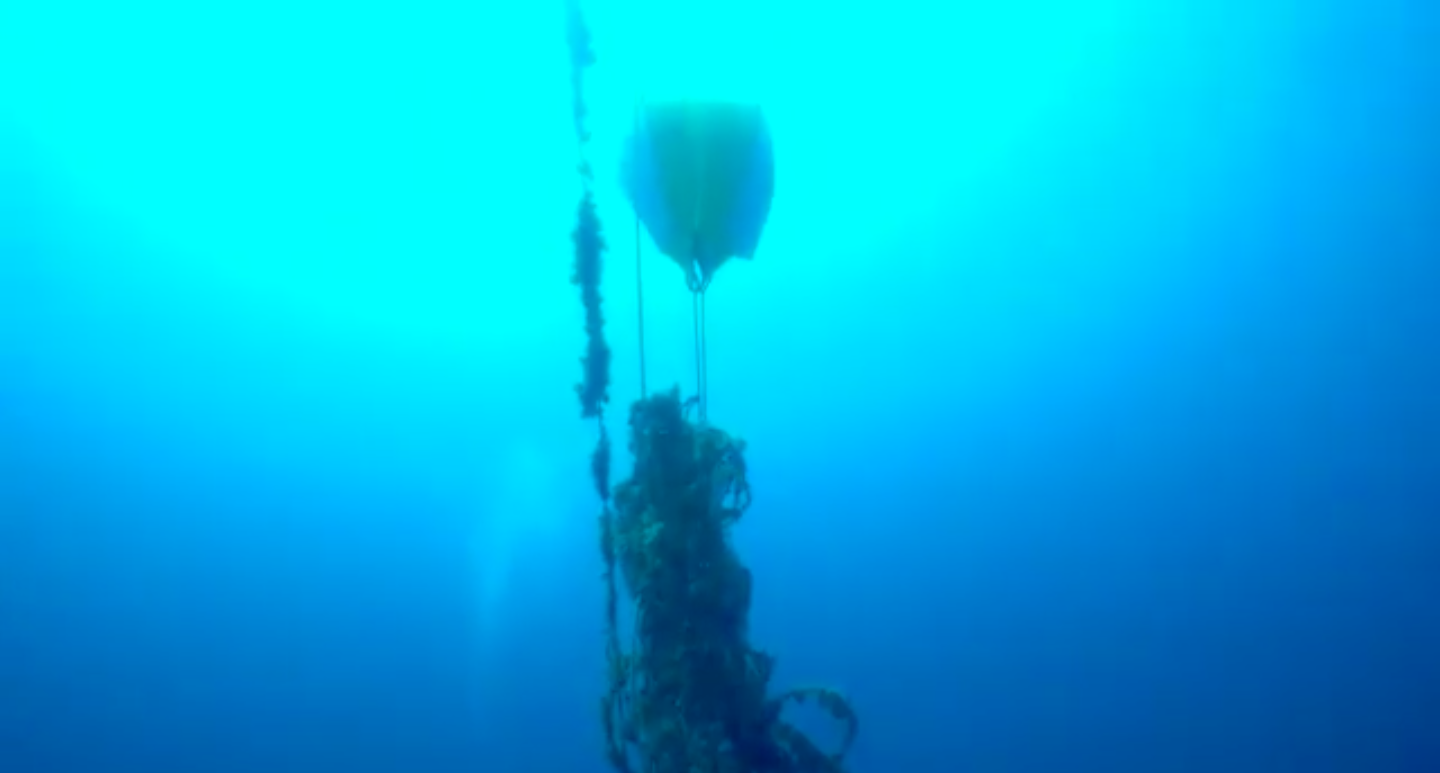
The recovery
The support fishing boat began to drag it slowly and laboriously towards the coast. Some flaps, the deepest, become entangled again. Martina and I had to go down to restore strength to the balls. The guys on the fishing boat decided to change their strategy and bring the net on board via the winch.
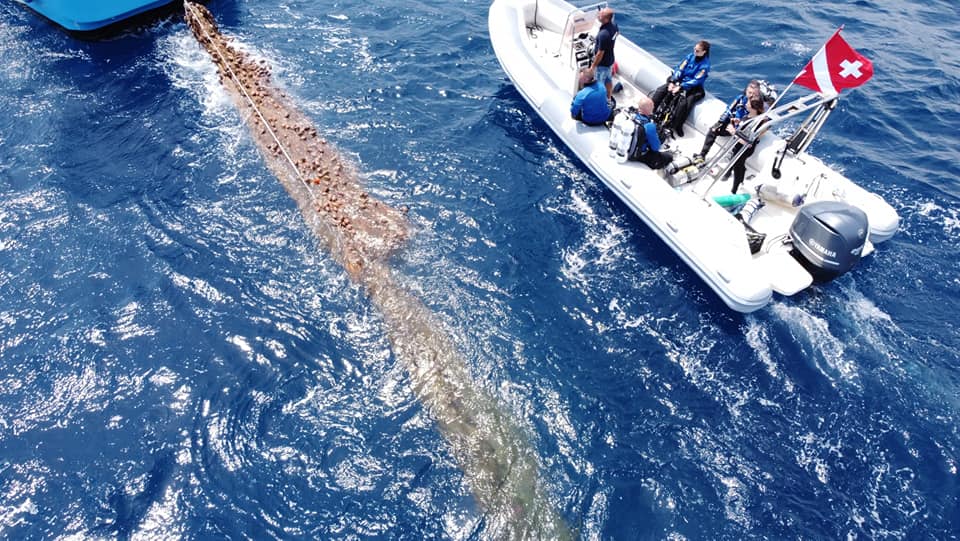
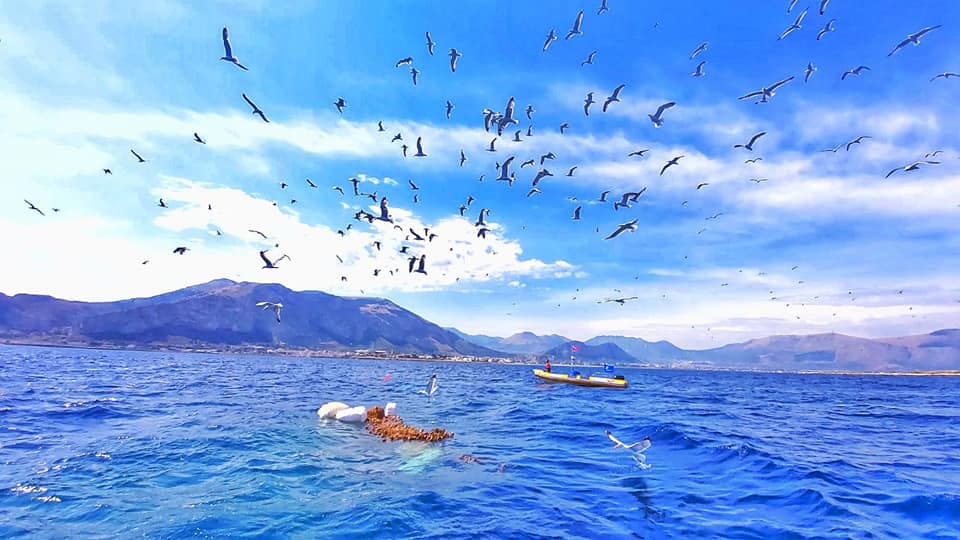
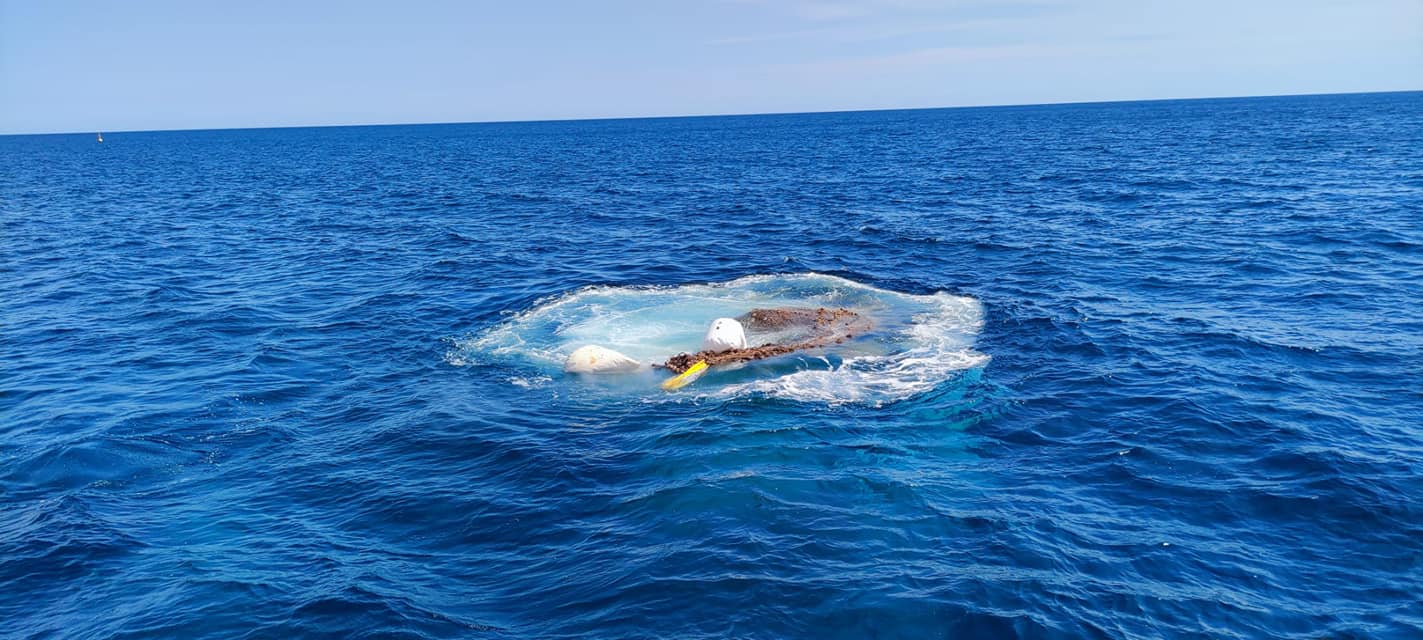
When I re-emerged some of this difficult work had been done. I joined to help them. After a plentiful hour of work, the network was finally on board. It was certainly a spadara-type net and approximately measures over 2000 meters.
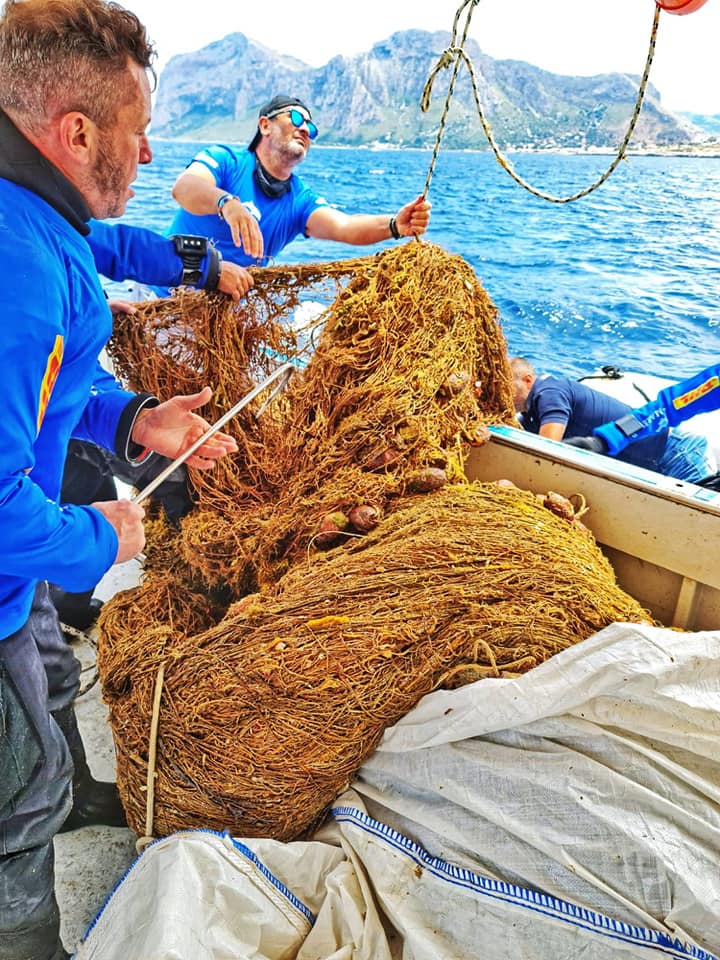
According to local fishermen, that “ghost” spadara, an abandoned fishing net, had been on the seabed of Isola delle Femmine for at least 15 years.
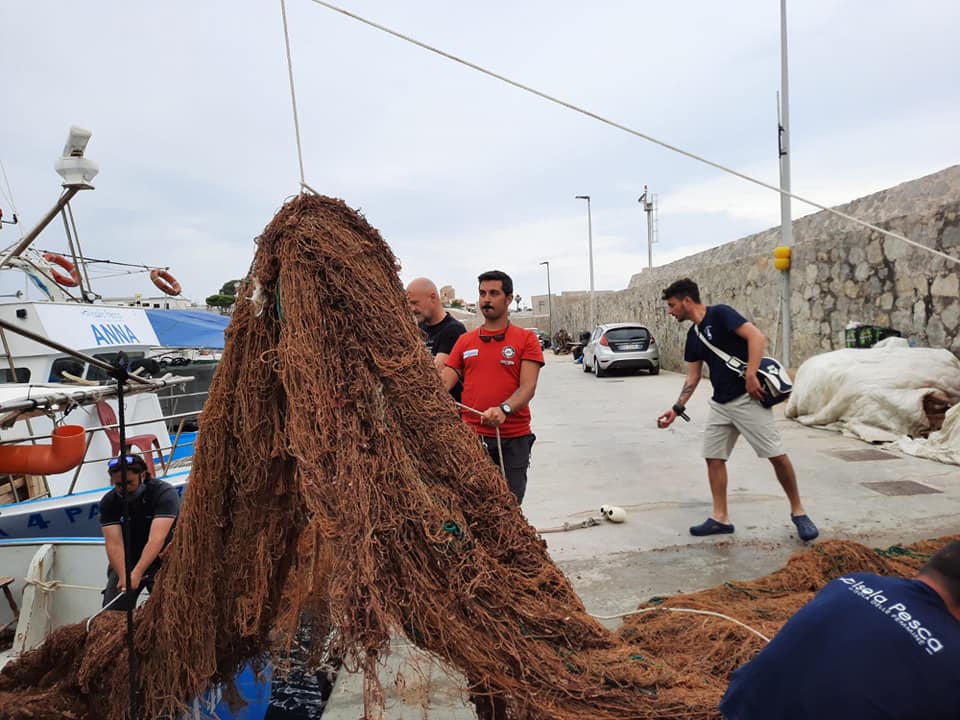
Abandoned fishing nets, large or small, represent one of the greatest dangers to marine life. According to an FAO study, the presence of these ghost nets involves the annual loss of at least 5% of the fish population, in addition to the capture of non-biodegradable plastics and fabrics. In short, it creates enormous damage to both the marine ecosystem and to humans.
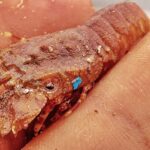
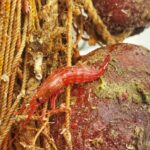
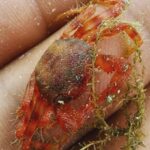
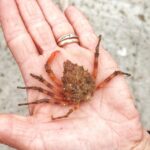
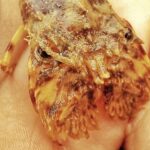
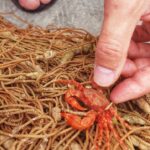
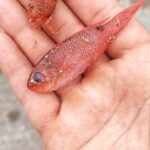
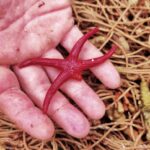
Once recovered on board, the network was unraveled and checked by the entire team involved. Thanks to this meticulous control we were able to put back into the sea, and hopefully in safety, an incredible quantity of species that unfortunately had remained imprisoned there. We gave them a second chance, hopefully better than the first chance they had.
We still have time to save the sea
Thanks to the latest generation recycling techniques, it will be possible to obtain fibers from recovered fishing nets to make clothing or for the production of sports nets, such as those of volleyball or tennis courts.
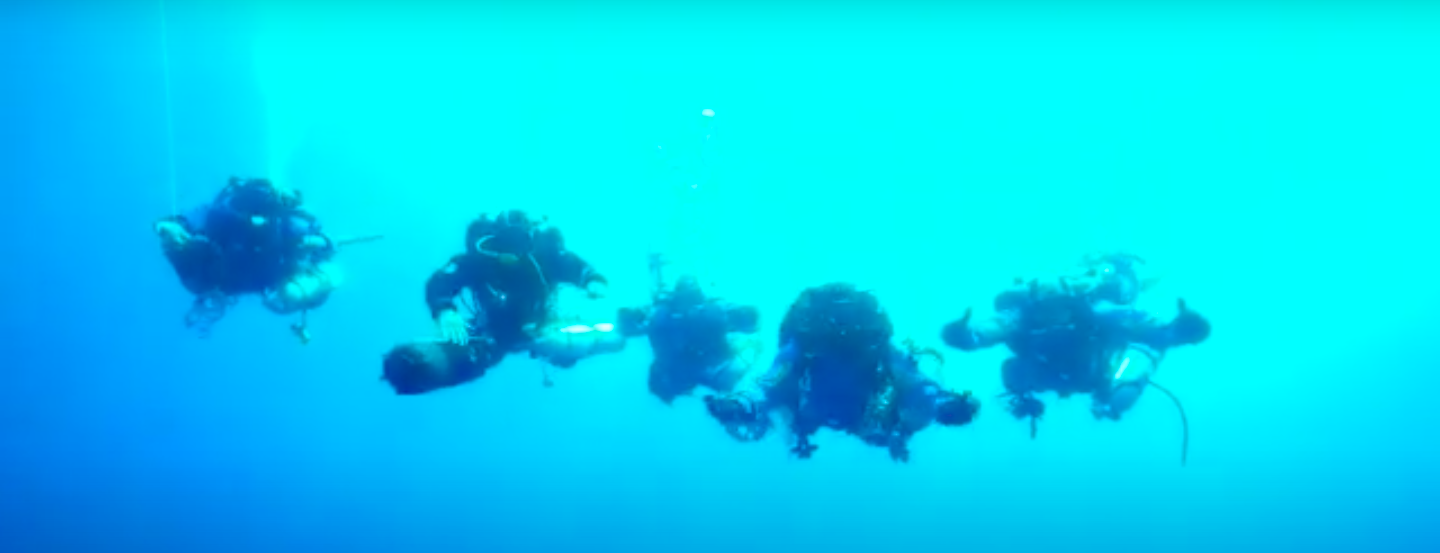
Men have always been diving in the sea. We have been looking for its treasures for years. Anyone who loves the sea cannot and must never find himself in front of a wall. A wall of nets.
The sea!! We still have time to save it!!
The team
The following took part in the recovery of the ghost network of Isola delle Femmine:
Roberto Bottini, Riccardo Cingillo, Andrea Di Vaira, Massimiliano Falleri, Stefano Sibona, Martina Campagnolo, Simone Villotti, Alberto Scontrino, Francesco Trapani, Chiara Scontrino, Vittorio Filippone, Filippo Fazzone, Marco Colciago, Andrea Agate, Vincenzo Mazzola, Enrico Ascani.
👌
If you want to read the press review click on the following links
https://www.facebook.com/1576406466/videos/10221821510638400/


